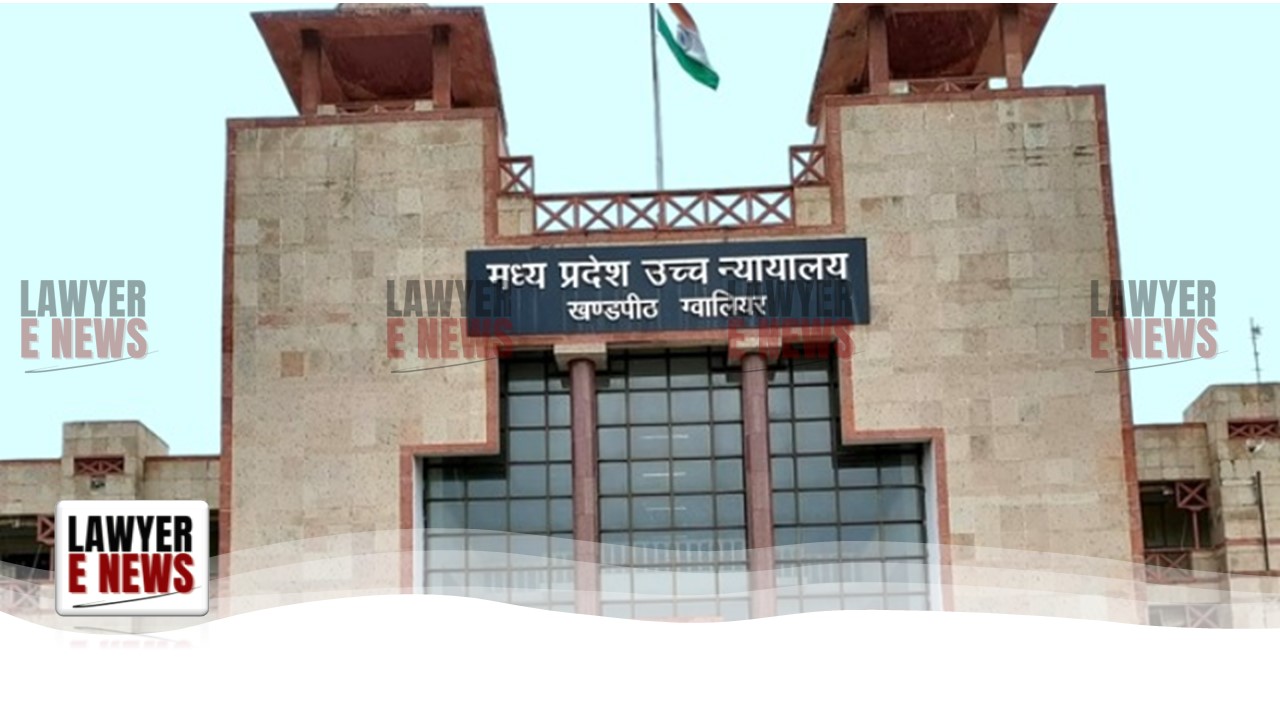-
by Admin
15 February 2026 5:35 AM



Madhya Pradesh High Court upholding a Single Judge's order that quashed a No-Confidence Motion against the President of the Municipal Council, Rajgarh. The case hinged on the retrospective application of an amendment to Section 43A of the Madhya Pradesh Municipalities Act, 1961, introduced by the Madhya Pradesh Municipalities (Second Amendment) Ordinance, 2024. The amendment extended the protection period for municipal Presidents from two years to three years before a No-Confidence Motion could be moved.
The appellants argued that the amendment should only apply prospectively and not affect their right to initiate a No-Confidence Motion that was filed prior to the amendment's promulgation. However, the Court concluded that the amendment was procedural and intended to protect municipal Presidents from frequent removal attempts. Citing the Supreme Court's approach to statutory interpretation, the High Court held that procedural amendments could apply retrospectively if they do not disturb substantive or vested rights.
The Right to Move a No-Confidence Motion Is Procedural, Not a Vested Right.
The dispute began after the President of the Municipal Council, Rajgarh (the writ petitioner), who was elected on August 20, 2024, faced a No-Confidence Motion from other council members shortly after completing two years in office. On August 27, 2024, the Collector of Rajgarh issued a notice scheduling a meeting to consider the No-Confidence Motion on September 7, 2024. However, on the same day, the Madhya Pradesh Government promulgated an ordinance amending Section 43A of the Municipalities Act, increasing the protection period for Presidents from two years to three years, and raising the required majority for a No-Confidence Motion from two-thirds to three-fourths.
The writ petitioner challenged the notice in the High Court, arguing that under the amended provision, the No-Confidence Motion could not be brought until three years had passed since their election. The Single Judge quashed the notice, ruling that the amendment applied retrospectively to protect the petitioner’s tenure, a decision that the appellants challenged through the current writ appeal.
The primary legal issue was whether the amendment to Section 43A of the Madhya Pradesh Municipalities Act should be applied retrospectively or prospectively. The appellants argued that since they initiated the No-Confidence Motion before the amendment’s promulgation, their right to do so was a vested right that could not be overridden by a retrospective application of the ordinance.
The Court distinguished between procedural and substantive rights, noting that the right to initiate a No-Confidence Motion is not a vested right but rather a procedural aspect of governance. The Court stated, "The right to initiate a No-Confidence Motion is procedural in nature and not a vested right, allowing for retrospective application of procedural amendments."
The Court emphasized a purposive approach to interpreting the amendment, focusing on the legislative intent to provide stability to elected municipal officials by protecting them from frequent No-Confidence Motions. Citing the Supreme Court’s rulings in Corporation Bank v. Saraswati and Rafiquennessa v. Lal Bahadur Chetri, the Court held that procedural amendments can be retrospectively applied if it serves the statute’s purpose and does not infringe on substantive rights. Here, the amendment’s objective was to ensure that elected officials serve a stable tenure of at least three years.
The High Court analyzed Section 43A and observed that the amendment merely extended the duration and increased the voting threshold required for passing a No-Confidence Motion, without altering any substantive rights. The Court reasoned that since the amendment aimed to ensure stability for officeholders, it should apply retrospectively to all pending No-Confidence Motions scheduled after the ordinance’s promulgation, even if they were initiated earlier.
The Court also relied on a prior decision in Manju Rai v. State of Madhya Pradesh, where a Co-ordinate Bench of the High Court applied the same ordinance retrospectively to prevent a No-Confidence Motion within three years of a President’s election.
The appellants argued that they had a vested right to move the No-Confidence Motion after two years based on the law at the time they filed it. However, the Court rejected this argument, concluding that the right to initiate such a motion is procedural and does not qualify as a vested right. The Court upheld the Single Judge’s reliance on Manju Rai and found no basis to interfere with the decision.
The Court referred to several Supreme Court judgments, including Rafiquennessa v. Lal Bahadur Chetri and M. Surender Reddy v. State of Andhra Pradesh, which establish that amendments affecting procedural aspects may be applied retrospectively. The Court noted that the amendment did not alter any fundamental rights or substantive entitlements of the appellants, thus allowing for its retrospective application.
The Madhya Pradesh High Court upheld the Single Judge’s order, dismissing the appellants’ writ appeal and affirming the retrospective application of the Madhya Pradesh Municipalities (Second Amendment) Ordinance, 2024. The Court ruled that the ordinance’s provisions, which extended the protection period for elected Presidents from two years to three years, were procedural in nature and served the legislative intent to prevent frequent challenges to municipal leadership.
This judgment reinforces the principle that procedural amendments intended to serve the stability and functionality of government institutions can operate retrospectively, especially where no substantive rights are affected.
Date of Decision: November 5, 2024
